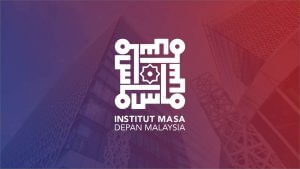Challenges in adopting Digital ID

By Mohamed Azmi Mohd Rasheed Khan, Head Corporate Services Division
The move to embark on mandatory digital identification under the proposed National Digital Identity (Digital ID) registration, undoubtedly, comes with a host of challenges and risks as Malaysia is still grappling with low digital adoption and digital inequality, especially in rural areas.
The level of cybersecurity awareness among Malaysians is still very low, resulting in many ending up as victims of cybercrimes.
Any plans or efforts towards the transition, therefore, must be aligned with the changing dynamics of a post-pandemic world where online interactions have become integral in working place and other daily activities.
The initiative should be able to addresses the need for a contactless, efficient and secure digital environment.
As the government works towards its goal of establishing Malaysia as a regional digital and startup hub, it serves as a foundational step in fostering innovation and inclusivity.
The move, no doubt, is without its challenges and risks. The existing fragmented systems and lack of standardisation in identity verification pose significant hurdles.
The risk to user data privacy and the inconvenience of managing multiple passwords for various online services are also of pressing concern.
To address these issues, the Malaysian Communication and Multimedia Commission (MCMC) has presented a detailed study, highlighting the need for a cohesive and standardized digital identity verification platform.
Another key concern surrounding the Digital ID initiative is the security and privacy of user data. To build trust and confidence, robust measures must be in place to safeguard sensitive information.
Malaysia can learn from Estonia which implemented a secure digital identity system in the early 2000s.
The integration of multi-modal biometrics, emphasising security and privacy in design, and adherence to international standards can be pivotal in ensuring a safe and secure digital ecosystem.
Many developed nations have adopted digital ID systems with caution. Some nations such as the United Kingdom and Germany previously avoided centralised digital ID for their internal management population.
Decentralised digital ID is used only in their immigration management. It also allows people to control their own digital identity without depending on a specific service provider.
Significant leap
Malaysia’s journey towards a national digital identity represents a significant leap towards a digitally integrated and secure future.
The fast-track implementation as announced by Prime Minister Anwar Ibrahim recently should be inspired by successful models from other countries to showcase the government’s commitment to embracing technological advancements.
As the initiative unfolds, it is crucial to prioritise data security, adhere to international standards, and communicate the benefits effectively to ensure a seamless transition for both the government and the citizens.
The move is not just about transforming digital services but shaping a future where trust, efficiency and innovation go hand in hand.
This initiative is a part of the Malaysia Digital Economy Blueprint – which was launched on Feb 19 2021, aimed at guiding the growth of the country’s digital economy.
The initiative aims to create a Verifiable Platform of Trust, providing secure and efficient digital identity verification for Malaysian citizens aged five and above.
It is not intended to replace MyKad but to complement it through security and efficiency enhancements in online transactions.
The drive for digital identity in Malaysia is rooted in the country’s commitment to advancing its digital economy and fostering a seamless online experience for its citizens and a broader vision to position Malaysia among the top 30 global startup economies by 2030, with a focus on digital transformation.

